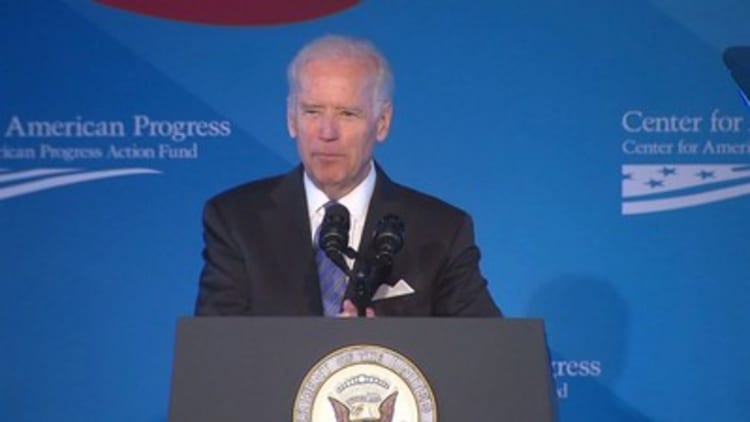Millions of people don't have access to their medical records. A recent exchange between former Vice President Joe Biden and the CEO of one of the largest health IT companies in America offers some insight into why.
As reported by Politico, Biden asked Judy Faulkner, CEO of medical record vendor Epic Systems, why patients shouldn't have access to their medical records.
Faulkner reportedly responded: "Why do you want your medical records?" There are a thousand pages of which you understand 10."
According to a source cited by the report, it went "downhill from there."
Health Twitter erupted in outrage at Faulkner:
For some, this discussion seemed to a rare window into her psychology -- Faulkner, who is also one of the richest women in America, is notoriously reluctant to speak to the press.
Others see this exchange as indicative of Epic's unwillingness to share patient health data, which serves the company's bottom line. Patient advocates stressed on Twitter and other forums that Epic's patient interfaces are not well-designed, and are extremely difficult to use.
But those who were present on that day say that the outrage isn't quite warranted.
Former White House CTO Aneesh Chopra, who was in the room, said the conversation was actually fairly cordial to his recollection.
"For those who were at the table that day, there was a motivation and desire to work together to improve data access," he said.
Chopra now spends his time on an application programming interface called FHIR, which is designed to make it easier to share health information electronically. He said Epic developers have been present in these discussions and are making progress. "This speaks to me to be positive momentum," he said.
Chopra stressed that Faulkner is neither a hero nor a villain, and that the problem is a lot more nuanced than that with many stakeholders involved. Fundamentally, the problem is that Epic, like many other medical record vendors, was initially designed for the purposes of billing -- and not for data-sharing.
Another former health IT expert, former Department of Health and Human Services' employee Arien Malec, agreed that Faulkner's words weren't nefarious.
If anything, he said, they seemed paternalistic.
Many in the health sector hold the view that providers, such as doctors, should own medical records as they will act in the patient's best interest.
"I suspect Epic and other provider organizations believe they know best about how to present to patients," he explained. "I also believe that Epic has committed to patient access and has demonstrated commitment for a long time."
If Faulkner is the villain, Biden has emerged a hero.
His response to Faulkner's question about why he would want his records seemed to sum up a lot of the frustrations felt by those in the medical community.
"None of your business," he retorted.
WATCH: Joe Biden starts a new PAC



